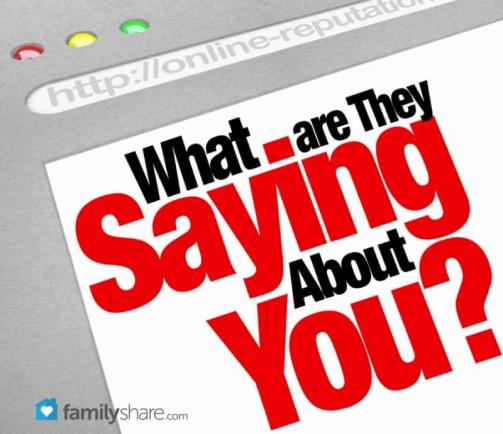
The Internet fails to yield an original source for this suggestion, "Live in such a way that if someone spoke badly of you, no one would believe it."� Likely the author has been forgotten because the idea has been repeated so often - because it is such good advice.
Reputation is a reflection of who you are. You can manage your reputation by using good public relations, but polishing a rotten apple won't make it a good addition to fruit salad.
I am reminded of the Rotary International "Four Way Test."� According to Rotary, the test asks the following questions of the things we think, say or do:
1. Is it the TRUTH?
2. Is it FAIR to all concerned?
3. Will it build GOODWILL and BETTER FRIENDSHIPS?
4. Will it be BENEFICIAL to all concerned?
You don't have to be a Rotarian to live by these standards (though, you are required to pledge to follow them if you choose to be a Rotarian, as I recently did).
These four questions serve to help you decide whether what you are doing would be consistent with the admonition to live in such a way that no one would believe the bad spoken of you.
If you are saying something that isn't true, you fail.
If you are treating someone unfairly in business or a relationship, you fail.
If it won't build relationships of trust, you fail.
If it won't be beneficial to others, you fail.
The great thing about these standards is that they are clear enough to be almost objective. If you are cheating someone, you know you are not being honest and that your dealings won't benefit everyone involved. You can clearly see the failure.
On the other hand, if your activities consistently pass these tests it is hard to imagine that anyone would ever have anything bad to say about you nor that anyone would believe it if they did.
Let's consider an example. When Enron was at its zenith, employees were engaged in a variety of activities that would fail to live up to the four way test. For instance, employees began shutting down power plants for unscheduled maintenance during peak usage periods in California, causing brown outs and spikes in prices for emergency power that Enron controlled, essentially forcing utilities to buy expensive power instead of the cheap power to which they were entitled. Despite the fact that this practice was profitable for Enron, it would fail all four of the tests. Clearly, closing a power plant for maintenance when none was needed was dishonest and unfair. It didn't build goodwill. It wasn't beneficial to all concerned.
You can live your life in such a way that if someone spoke badly of you, no one would believe it. The four way test gives you a simple way to measure every word and action to be sure you are.

